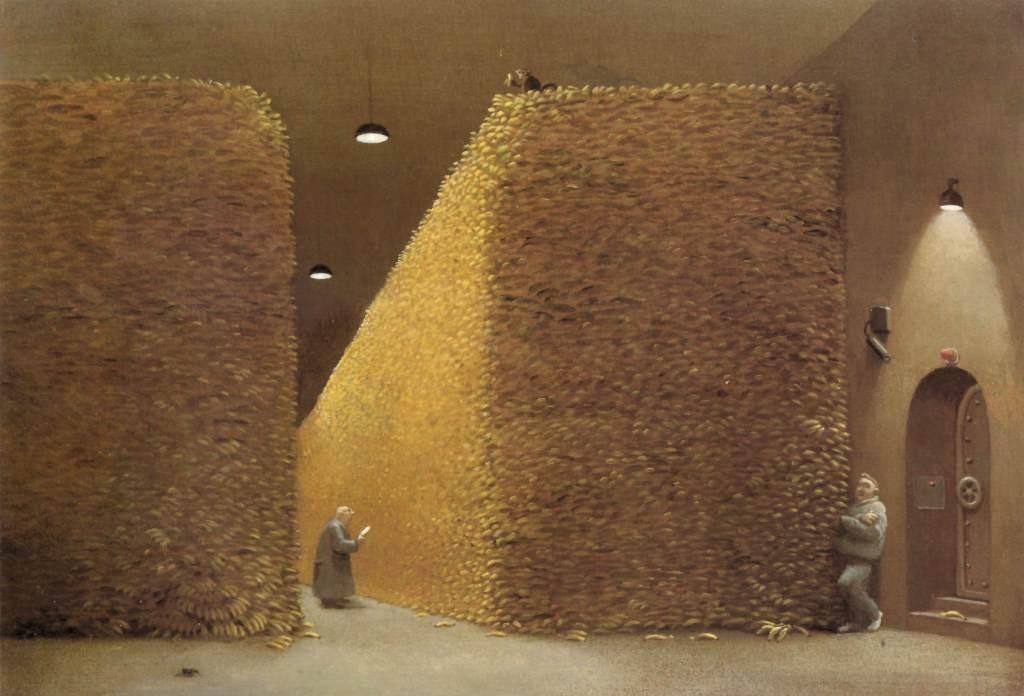
Michael Sowa: Der Stasischatz (1989)

The dos and don'ts of a healthy economy |
| For about a quarter of a century, i.e. since Russia and its satellites bid farewell to communism, a more or less free market has pervaded most human activities on this earth. If possessions and powers are allowed to distribute freely among all global players (and we all are to an increasing extent acting globally now), it is not surprising that this distribution will not result in perfect equality. |
| People differ from each other. There will always exist a minority more ambitious and more clever than the rest. This has to do with educational systems, but some difference would persist, even if all of us would receive the same educational consideration. In a free market, permeable to goods and money, the riches will always end up in the hands of this minority. It has happened before, and it happens again. |
| In the end, in former times the rest of us got fed up with the system, once the inequalities reached a certain point, and tried to throw it over, even with the application of brute force. Cities burned, heads rolled, and possessions were plundered. Nowadays we live in more civilized times, fortunately. Inequalities are recognized sooner, before the mob rises up, and regulations are put into place, before the equilibrium turnes over. |
| But do we? Are we acting with due consideration, knowing about the imminent risks? As a matter of fact, the free market goes on almost without limitations. Cities are sold to international investment funds, tons of raw materials are aquired and disposed of within seconds, bets are taken up on gains and losses, and our economic world more and more ressembles a gigantic gambling hall. Money flows through the world, forgetting its origin after passing through dozens of hands. |
| We urgently need to stop this, before inequalities rise even further. It makes no sense to wait for philanthropic self-limitation of the rich. This will not happen, at least not on a sufficient scale. We need to stop the game, to close the market. We need stricter rules. We need speed limits, we need volume limits, and we need range limits. Speed: If you buy something, keep it at least for a minimum time period (if you order 9.000 tons of bananas, prepare for delivery...). |
| Volume: No one should be allowed to handle amounts of money exceeding the wage of an average employer by a factor 10.000; only public institutions under official control should be entitled to deal with such amounts, no private individual. Range: Goods and money should only be transferred over justifiable distances. Thus, lemons will be transported from Italy to Sweden; but why should we transport potatoes from Turkey to Germany? Tomatoes from The Netherlands to Austria? Walnuts from the USA or China to Europe? |
| With such limitations in place, it will be more difficult for a minority to accumulate disproportionate riches, and for smaller economic units it will become easier to thrive and to survive. We need to reconquer our local economy from the globally acting sharks. Lets develop pressure for such changes, before the mob develops pressure by less educated means. |
| 8/13 < MB
(9/14) > 9/13 Thorny blossoms of globalization |